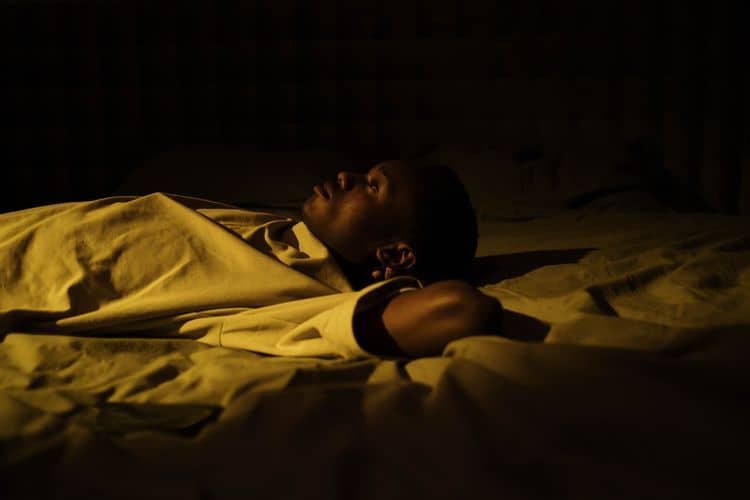Insomnia is a sleep disorder that causes difficulty falling asleep and staying asleep. People with insomnia may frequently wake up during the night or wake up too early and not be able to fall back asleep. Many people with insomnia still feel tired when they wake up despite not being able to sleep more.
Most adults experience short-term insomnia at some point in their life, usually lasting a few days or weeks. However, chronic insomnia can last for months and, if left untreated, can negatively impact your energy levels, physical and mental health, performance at work or school, and overall quality of life.
Related Article: Insomnia Causes and Treatment
How Do I Know If I Have Insomnia?
It’s normal to have a poor sleep here and there. People with insomnia experience diminished sleep quality on an ongoing basis over a short or long period.
Common signs and symptoms of insomnia include:
- Difficulty falling asleep at night
- Waking up frequently during the night, too early and/or tired even after a full sleep
- Daytime tiredness and fatigue
- Irritability
- Depression
- Anxiety
- Trouble focusing
- Memory issues
- Increased mistakes or accidents
- Stress or worries surrounding sleep
If you have one or several of the symptoms listed above, consider talking to a doctor to find out whether you have insomnia.
Related Article: Depression and Insomnia

Why Do I Have Insomnia?
Insomnia can exist independently but is often associated with other underlying issues. Chronic insomnia is usually brought on by stress, traumatic life events, or sleep-disrupting habits. Addressing these underlying issues can help reduce insomnia, though it may take months or even years to resolve fully.
Common causes of insomnia include:
- Stress. Ongoing stress and pressure at work or school or concerns about finances or family matters can make it difficult to relax enough to fall asleep at night. Trauma such as the death of a loved one or the loss of a relationship can also cause acute or chronic insomnia.
- Busy or irregular schedule. Our bodies have an internal clock system known as circadian rhythm that regulates our sleep-wake cycles, metabolism, and body temperature. When this cycle is disrupted due to a busy schedule that requires sleeping at different times, it can become challenging to get to sleep when you want to. Traveling across time zones or working early or late shifts can disrupt circadian rhythm.
- Poor sleeping habits. Poor sleep habits can include eating before bed, having an irregular sleep schedule, sporadically taking naps, and engaging in stimulating activities before bed. These habits can lead to insomnia by disrupting the body’s ability to wind down properly before bed.
Other common causes of insomnia, specifically chronic insomnia, include:
- Mental health disorders. People with insomnia commonly have underlying mental health conditions. Conditions like anxiety, depression or post-traumatic stress disorder can negatively impact our ability to fall asleep.
- Excessive caffeine intake. Drinking too much coffee, tea or cola or drinking them in the evening before bed can prevent you from falling asleep quickly. Nicotine in tobacco products can also have a similar effect.
- Medications. Certain medications such as antidepressants or medication for asthma or blood pressure regulation can disrupt sleep and lead to insomnia. Allergy and cold medications and some weight loss supplements may also cause insomnia, especially if they contain caffeine or other stimulants.
- Alcohol intake. Many people find that alcohol helps them get to sleep. However, alcohol often causes lowered sleep quality, waking in the night and can prevent deeper stages of sleep.
- Medical conditions. Conditions including chronic pain, diabetes, heart disease, asthma, overactive thyroid, Parkinson’s disease and Alzheimer’s have been linked to insomnia.
- Sleep disorders. Conditions like sleep apnea cause you to stop breathing at intervals throughout the night, disrupting sleep. Other conditions like restless leg syndrome may make it difficult or uncomfortable to remain still enough to fall asleep easily.
Specific groups are at greater risk of developing insomnia, including:
- Women
- People over the age of 60
- People with underlying physical or mental health conditions
- People who are regularly under a lot of stress
- People who are unable to maintain a consistent schedule
Insomnia can be caused by a combination of risk factors, lifestyle habits, and physical or mental conditions. Talking to a doctor can help you identify what is causing your insomnia.
When to Seek Insomnia Help
If insomnia begins to interfere in your daily life, talk to your doctor or a registered psychiatrist to help identify the root of the issue and develop a treatment plan. With a few changes to your sleeping habits or work schedule, you may be able to reduce the symptoms of insomnia. If your doctor believes you have a sleep disorder or another underlying condition causing insomnia, they may refer you to a specialist or mental health professional who can help.
If you’re looking for insomnia treatment in Massachusetts, the team at Arcara Personalized Psychiatry is here to help with counseling and more. Take the first step today and contact us.



